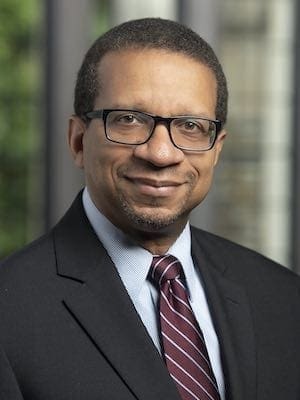Someone murdered an off-duty police officer named Mark MacPhail in Savannah, Ga., in the late 1980s. The state of Georgia convicted a man named Troy Davis and sentenced him to death in 1991.
No one ever found the weapon used in the crime. No one ever found evidence that links Troy Davis to the murder of Mark MacPhail. Seven of the nine alleged eyewitnesses during the trial recanted or contradicted their original testimony. Of the only two alleged eyewitnesses maintaining their stories, one of them was a suspect in the murder. The other one could not identify Davis when MacPhail was murdered but was able to identify him two years later.
Davis has asked the courts to review evidence that could support his claim to innocence. A three-judge panel denied his petition in April 2009. Many groups are urging people to sign online petitions to the new district attorney in Chatham County, Georgia, Larry Chisolm, to plead with him to work to prevent the execution of Troy Davis and to reopen the case against him. Davis presently has a final appeal before the U.S. Supreme Court.
This is a troubling picture. The bothersome nature of Troy Davis’ predicament calls Christians to think about what it means to do justice, love mercy and walk humbly with God.
To terminate life is irrevocable. It is the ultimate deed. It is a permanent action. One cannot responsibly approach irreversible acts casually or ignore them easily.
To take a life raises substantial theological questions for disciples of Jesus. Jesus, after all, came that people might have life and have that life abundantly. To take a life demands significant theological reflection for disciples of Jesus whom God, motivated by immeasurable love for the world, gave so that all who believe in him would have eternal life. To take a life is to stand in final judgment on the right or the privilege of another human being to live.
One of several things that disturbs me about the Troy Davis case relates to theological anthropology. How does our understanding of humanity impact our ability to judge whether another human being should live or die given the significant questions surrounding this trial and conviction? How can people be certain that they have reached an appropriate decision that is irreversible when their conclusions have been drawn through clouded and contradictory realities?
Whenever we handle the things of God, we must do so with humility. We must do so for at least two reasons. First, we are handling the “holy.” To think, speak or act for God is a privilege for which none of us is adequately prepared. The things of God are the things of God. That we have permission to think or speak or act on the things of God is an honor that we must approach seriously and cautiously and tentatively. I worry whenever I hear someone speak too confidently of the things of God. You might be wrong.
Second, “we” are handling the holy. Sin has damaged all humans. Our personal sinful actions and thoughts, as well as the sinful actions and thoughts of others, damage our capacity to be faithful to God in ways we ought. None of us is disconnected from the sinfulness of the human family. None is immune to the worldviews that are too often projected as if they are objectively and universally normative.
We must struggle to discern the difference between God’s will for the world and the world’s will for God. People believed that slavery was right when it was wrong. People believed denying full humanity and equality of women was right when it was wrong. People believed that subjecting children to long hours of grueling labor for pittance in pay was right when it was wrong. Our personal sin and the sin of our societies are bound together, and it is impossible to untangle them easily or perfectly.
As a matter of justice, a groundswell of Christians should join Archbishop Desmond Tutu, Pope Benedict and Sister Helen Prejean (author of “Dead Man Walking”) to call for reopening the case of Troy Davis. A decision to kill him is a permanent one. Should disciples of Jesus support his murder or ignore his execution given the inconsistencies of the case against him and the failure to review evidence that could exonerate him? Perhaps the one who is without sin should give the first injection.
David Emmanuel Goatley is executive secretary-treasurer of the Lott Carey Baptist Foreign Mission Convention.

